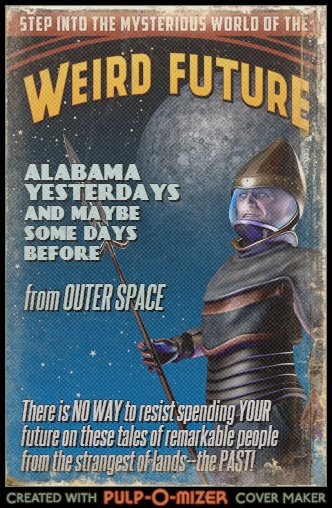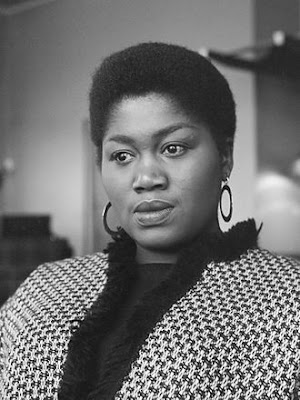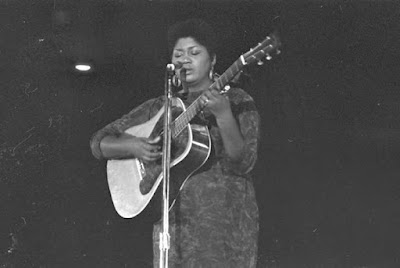I've written on this blog about singer and Birmingham native Odetta Holmes [1930-2008], who became known by her first name only. You can read about her life and long career in that post. As Odetta she toured the world singing blues, jazz, spirituals and folk songs and was a prominent figure in the American civil rights movement of the 1960's. She was also the first performer to record an entire album of Bob Dylan covers.
In addition to the music career, Odetta acted in a few films and tv shows. Her films included the 1961 Sanctuary based on the William Faulkner novel and the 1974 television film The Autobiography of Miss Jane Pittman based on the Ernest J. Gaines novel. Recently I happened to watch her appearance on an episode of the western tv series, Have Gun Will Travel first broadcast on the CBS network on November 4, 1961.
That show was one of a number of successful "adult westerns" that filled U.S. TV screens in the 1950's and 1960's. Starring Richard Boone as Paladin, a gun for hire based in San Francisco, the program ran for 225 episodes from November 1957 until April 1963. I came across a couple of commentators on this episode who declared it to be one of the series' best, and I agree.
As "The Hanging of Aaron Gibbs" opens, Paladin is headed home across the lonely prairie when he encounters Sarah Gibbs [Odetta] singing to her dying horse. She tells him she is headed to a mine, where her husband Aaron is about to be hanged for his supposed involvement in the death of another worker. Sarah is afraid she won't be able to talk with her husband, and Paladin--being a renowned knight of the west as he is--goes to the mine with her. She just wants to see Aaron one last time and collect his body for their son to bury.
They encounter a crowd as hostile to them as it is to Sarah's husband. I won't tell you how the episode ends; I urge you to seek it out for yourself. I will say that Paladin works his usual negotiating magic in a very quiet, understated story that features a wonderful performance from Odetta.
So how did the singer end up in this role? A commentator at the IMDB "roycevenuter" covered that [although he cited no source]:
"Peggy Rea, who played many roles over the years in this series, was also one of many acting students of Richard Boone in his Brentwood Market School for Actors. It was she who knew someone who knew Odetta, reached her in Boston, whereupon, Odetta contacted the production company and requested the part. The crew was filming in Bend, Oregon; and, prior to the hiring of Odetta, there had been considerable tension in the community until Odetta arrived; then, everyone calmed down and became quite focused."
Peggy Rea is also in this episode. Another minor cast member is Hal Needham, who began his long Hollywood career as Boone's stunt double on this series. Needham worked as an actor, stunt man and director well into the 1990's. Among his best known films as director are several with Burt Reynolds, including Smokey and the Bandit. Sarah's husband Aaron is played by Rupert Crosse, who in 1969 became the first African-American nominated for a Best Supporting Actor Academy Award for The Reivers.
The episode's script was written by Robert E. Thompson. He wrote 19 episodes for the show, but that was only a fraction of his output in Hollywood. He wrote numerous other scripts for shows such as Wagon Train, Bonanza, and Mission: Impossible as well as made-for-TV films. He also wrote the script for a theatrical film, They Shoot Horses, Don't They? that won him an Academy Award nomination. Great film, by the way.













